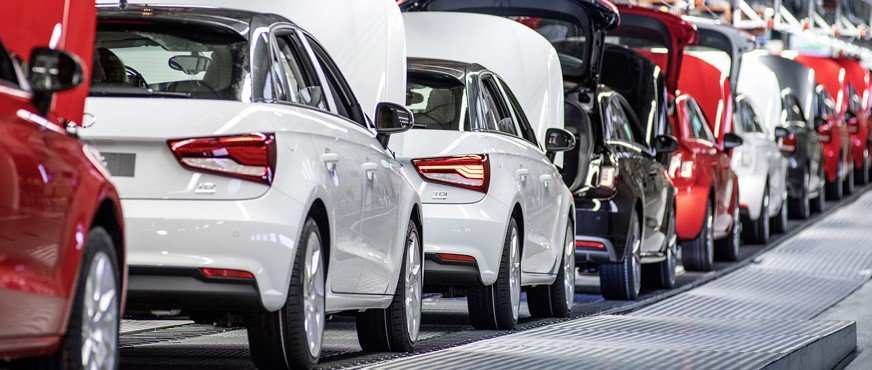FRANKFURT, Germany — A U.S. warning that it may introduce tariffs on foreign auto imports hit shares in German carmakers BMW, Daimler and Volkswagen on Thursday, which together have a more than 90 percent share of North America's premium car market.
Washington said on Wednesday it had launched an investigation into whether car and truck imports are a national security issue due to signs they had damaged the U.S. auto industry.
That could lead to new U.S. tariffs — up to 25 percent — similar to those imposed on imported steel and aluminum in March.
BMW and Daimler shares fell as much as 3.1 percent in early Thursday trading, while Volkswagen's dropped as much as 2.5 percent.
"(U.S. President) Donald Trump is obviously not thinking about how to prevent a trade war. Import duties on cars would be a nightmare for the German auto industry and would lead to a massive sales impact," said Thomas Altmann at Frankfurt-based asset manager QC Partners.
BMW on Thursday condemned the move to consider tariffs.
"The BMW Group is committed to free trade worldwide. Barrier-free access to markets is therefore a key factor not only for our business model, but also for growth welfare and employment throughout the global economy," it said.
Daimler, which makes Mercedes-Benz cars, and Volkswagen, which makes upmarket Audis and Porsches, were not immediately available for comment.
German carmakers produced 804,000 cars at local factories in the United States and exported 657,000 German-made cars into North America last year, according to German auto industry association VDA.
China took pains on Thursday to welcome German firms and investments, with Premier Li Keqiang talking up relations after a meeting with German Chancellor Angela Merkel.
BMW and Mercedes have expanded production capacity in the United States, but BMW, Audi, Volkswagen and Daimler have also invested billions to build new factories in Mexico in the hope of selling locally produced cars into the United States.
German carmakers hiked vehicle production in Mexico by 46 percent to 620,000 cars last year, while production levels inside the United States fell by 6 percent to 804,000 cars because of a shift to Mexico, according to the VDA.
BMW has its biggest factory worldwide in Spartanburg, South Carolina, and is the largest vehicle exporter among all the carmakers in the United States measured by value of goods exported. More than 70 percent of BMW's U.S.-made cars are exported.
The risk of tariffs is not just a problem for German carmakers, with shares in France's PSA Group and Renault also falling by more than 1 percent. Neither has a presence in the U.S., though PSA has plans for a return to the American market.
The value of trade imports into the European Union from the United States amounted to 6.157 billion euros while exports of EU-built cars to the United States amounted to 37.4 billion last year, representing almost 30 percent of the total EU export value.
Verwandte Nachrichten

